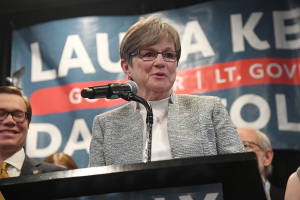'Black Jesus,' Though Crude at Times, Is Honest and Accessible Portrayal of Christian Savior, According to Critics
But Does Aaron McGruder's Comedy Series, a Hit With Young Males, Have the Potential to Draw Viewers to Christ?
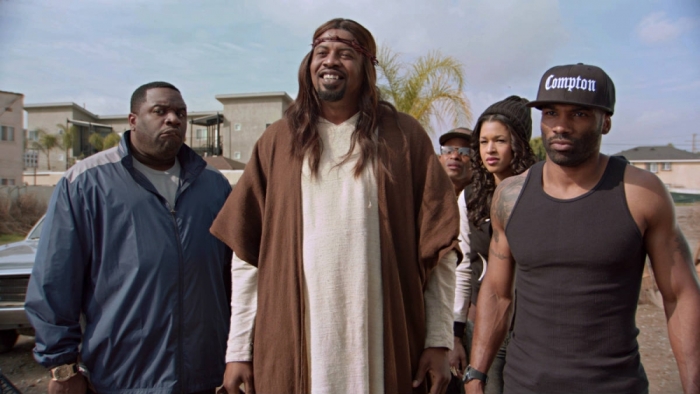
NEW YORK — "Black Jesus," a live-action comedy series airing on Adult Swim, drew swift condemnation before its premiere in early August. Some Christians, after viewing a three-minute trailer, blasted Aaron McGruder's satirical portrayal of their lord and savior as a weed-smoking, foul-mouthed black man living in Compton, California. Some among the "violently offended" called "Black Jesus" blasphemous, disrespectful to African Americans, and just all around a bad idea.
But others, who have viewed more than the trailer that sparked much of the hullabaloo, say "Black Jesus" is not all that bad — and certainly not worth mounting a boycott against, as some ticked off Christians have called for.
McGruder is known for his unapologetically aggressive and satirical comic-turned-animated series "The Boondocks." He is executive producer of "Black Jesus," with Mike Clattenberg ("Trailer Park Boys") directing and as well as joining McGruder and Mike O'Neill as writers.
"Black Jesus" features a towering, long-haired Gerald "Slink" Johnson in the title role. He hangs out with a small ne'er–do–well but loyal crew that he gets high with, appears to mooch off of and inspires to do good deeds — like building a community garden (where they can also grow marijuana). But behind the cloud of weed smoke and detonated f-bombs, Slink's Jesus comes across as sincere in his mission to spread love and kindness, shows the utmost faith in his heavenly father, and is eager for his crew and Compton Garden neighbors to shed their vain, coveting and selfish ways.
"It's not a preachy show, but Jesus preaches all the time, because he's Jesus," McGruder told a reporter on the set of a "Black Jesus" shoot. "And as much as it may seem to be a completely upside-down depiction, the more we do it, the more it feels honest, sincere and actually grounded in what Jesus is supposed to be about. It's only because this story has been hijacked for so long, that the idea of Jesus as an actual poor person seems crazy. So really this is a show about people who are just like anyone else, except they don't have s---. And in many ways, Jesus' message is that you don't need s---, you just need love and kindness."
Admirable. But at least one New York City resident wasn't buying it.
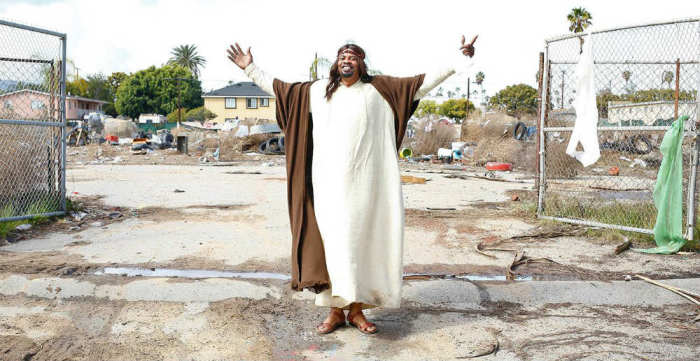
"The first thought that came to my mind is, 'OK, here again the world is making fun of God.' But then Jesus said not everybody would accept him, you know," a woman named Betty told The Christian Post. She shared her views with CP at the site of a "Black Jesus" mural-styled ad on the exterior of a building in Williamsburg, Brooklyn, one of NYC's five boroughs.
"Even though Jesus came to save the world, Jesus did say that not everybody would accept him. And he did also say that people would use his name in all kinds of ways," added Betty, who did not provide her last name.
Taking a final look at the mural, she declared, "It looks like buffoonery."
To be fair, Betty had not actually watched an episode of "Black Jesus" before she spoke with CP. Her opinion was mostly informed by the mural and by watching a snippet of the trailer (you can watch an abbreviated trailer below).
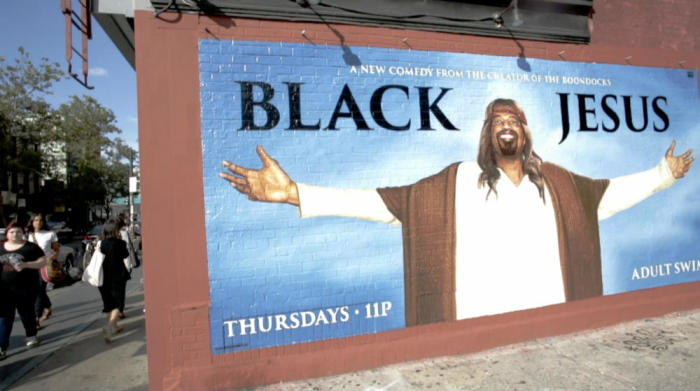
Eric Canaday, an author and pastor in Aurora, Colorado, did watch the premiere episode, twice, and seemed to find "Black Jesus" bittersweet.
"I think it was ignorant. I think it was wrong. But I do believe that the show was honest," Canaday told CP.
"When you think about people's faith in God or religion or even in Jesus Christ, many times Jesus Christ shows up in situations that really aren't ideal. So if you have someone who's grown up in the hood, or in Compton — now I'm not from Compton, so I can't speak for Compton. But I did grow up in a single-parent household with a lot of friends and family members who were maybe involved in drug culture or close to some issues of homelessness. And the message that you get, especially if you grow up in church, is that God cares, Jesus cares. And this Jesus is the type of Jesus that shows up in a place of struggle, with some compassion but with honesty."
He added, "I've been around people, or grown up with people, who would talk about Jesus one second, and then use cuss words the next moment. And that is just a true reflection of how people process and view Jesus. The show is funny."
But TV and Film critic and "Boondocks" fan ReBecca Theodore-Vachon isn't laughing.
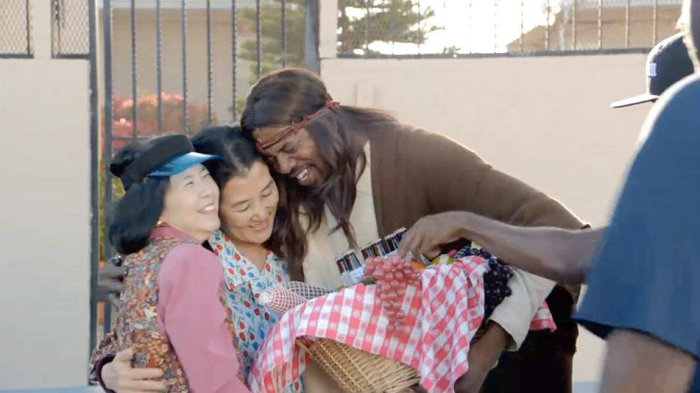
"I really had high exceptions for 'Black Jesus,' and I understand the controversy. The idea of a black Jesus, living in Compton, smoking weed, drinking forties, so I was like, 'OK, well let's see what Aaron is gonna do with it.' But I don't know that... It's not his best work," she told CP.
McGruder can't actually count Bill Donohue as a fan, but the president of the activist organization the Catholic League, known for railing against troublesome pop portrayals of Christianity, surprisingly referred to the "Black Jesus" title character as a "mixed bag" with "many redeeming qualities."
Donohue, who had watched at least two episodes of "Black Jesus" before talking with CP, acknowledged that his views on the Adult Swim series might cause some conservative Christian critics to snicker. He believes a boycott should be used as a "weapon of last resort."
He explained, "One of the reasons that I took the position that I did on 'Black Jesus' [is] I want to try and show [that] the Catholic League is not going to be reflexively against everything that Hollywood does that makes us maybe wince a little bit."
Though skeptical at first and expecting to be hit with "another one of these trashy Jesuses," Donohue said he was able to watch "Black Jesus" and look past the off-color language and mannerisms because the lead character's divinity is recognized.
"What matters to us...is the presentation of Jesus. And Jesus does come across in terms of his own presentation as being Jesus," said Donohue. "He's kind, he's respectful, he asks people to reach out to people. He's very forgiving."
Most importantly, "They don't make fun of Jesus."
Does it matter that McGruder's presentation of the 1st century Palestinian Jew is that of a black man (with wavy hippie-styled hair)?
To Brooklynite Caleb Harris, a black Jesus was a part of the comic relief.
"They depict him as black Jesus, but like in the hood. It's funny. It's like a cool flip. It's not disrespecting anybody," said Harris, who made sure to point out to CP that his name "is in the Bible."
Another passerby in Williamsburg, Brooklyn, a longtime hipster enclave, thought that a black Jesus was a nice change of pace from the usual Caucasian portrayals. Although a Jesus with a darker skin tone was not novel and arguably not far off from reality, it is extremely rare to see such a portrayal in popular presentations.
"I think that Jesus was definitely not white so it's nice to see Jesus not being white in something," Dylan Greenberg told CP. "So that's really refreshing..."
Theodore-Vachon, the film and TV columnist, explained, "For the most part, the image of Jesus has been presented as Euro-centric, blonde hair, blue eyes. So I think there's definitely that need to see diversity, because even Biblical scholars will be like he's not...he didn't have blond hair and blue eyes."
She added that an anomalous Jesus might make the show "a little more accessible for people."
Canaday, the Colorado pastor, pointed out that the Bible only speaks of a "human race" and that tension over Christ's physical appearance is "just a reflection of our culture and some of the challenges we've had with racial constructs."
"When you take a look at the Bible, the Bible never even mentions race. It speaks of tribes, nations and tongues. But it doesn't talk about black people and white people. The Bible also tells us that out of one blood that God made all mankind. So when you take a look at the issue of race Biblically, what you have to come to the conclusion on is that Adam was of the human race and we are all members of that race. Many ethnicities...and that sort of thing, but we're all one human race," said Canaday.




















